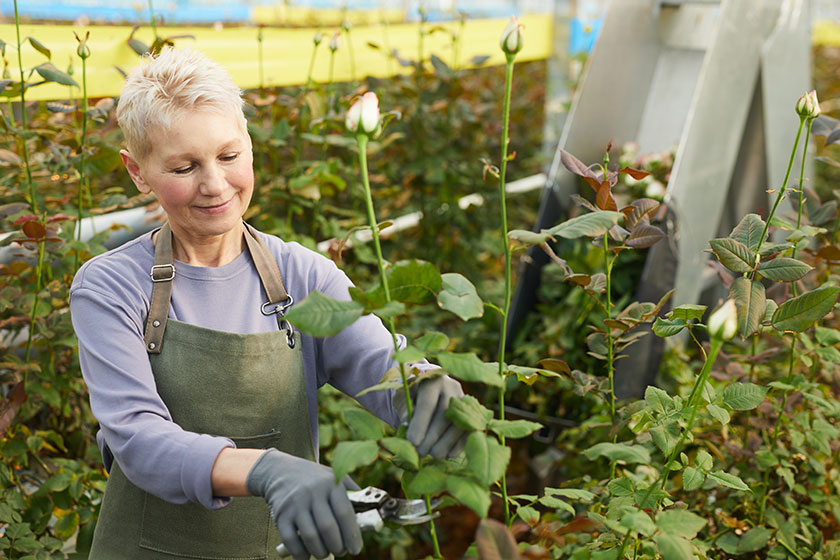In an age where the pursuit of health and well-being takes center stage, it’s essential to explore simple yet effective ways to enhance the lives of residents. One such avenue is the act of spending time in the garden, an activity that holds an array of remarkable health benefits for older individuals. In this article, we’ll delve into the positive impact that connecting with nature can have on the overall well-being of residents.
Enhancing Physical Health
Engaging in gardening activities offers a unique blend of exercise and relaxation. Whether it’s digging, planting, or simply strolling among the greenery, these physical movements contribute to improved mobility and flexibility. Gardening can also serve as an enjoyable way to get some much-needed vitamin D from sunlight exposure. The combination of light exercise and sunshine can help the resident maintain bone health, strengthen their immune systems, and enhance their overall physical well-being.
Mental Health and Cognitive Benefits
The benefits of spending time in the garden extend beyond the physical realm. This outdoor activity provides residents with a serene environment to clear their minds and reduce stress. The calming effect of nature can alleviate symptoms of anxiety and depression, promoting mental well-being. Furthermore, engaging in gardening tasks exercises the brain, stimulating cognitive function and memory retention, which is vital for maintaining mental sharpness as one age.
Social Interaction and Emotional Well-being
Gardening can be a communal experience, bringing residents together in a shared endeavor. Whether it’s tending to a community garden or spending time with family in the backyard, this activity fosters social interaction and emotional connection. Residents can share their gardening experiences, stories, and knowledge with others, creating a sense of belonging and purpose.
Nutritional Benefits
Growing fruits and vegetables in the garden offers a direct link to healthier eating habits. Residents who cultivate their produce tend to incorporate more fresh, organic, and homegrown foods into their diets. This shift towards nutritious options can lead to better health outcomes, including improved digestion, weight management, and a reduced risk of chronic diseases.
Stress Reduction and Improved Sleep
One of the most significant benefits of spending time in the garden is its ability to reduce stress levels. The tranquility of nature, coupled with the physical activity involved, can promote relaxation and better sleep patterns among residents. Reduced stress and improved sleep quality, in turn, have a positive impact on overall health, mood, and cognitive function.
Incorporating gardening into the daily lives of residents can significantly enhance their well-being. The physical, mental, and emotional benefits of spending time in the garden make it a simple yet powerful tool for promoting a healthier and happier lifestyle. As we age, it becomes even more crucial to explore activities that nourish our bodies and minds, and gardening undoubtedly fits the bill.
If you’re looking for senior living options that prioritize the well-being of older adults, consider Seaton Voorhees. Our community embraces the philosophy that a fulfilling life involves staying active, connected, and engaged in activities like gardening. Contact us to learn more about how we can enhance the quality of life for you or your loved ones.







